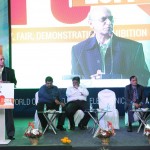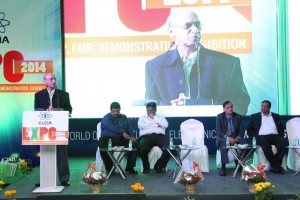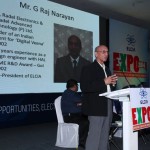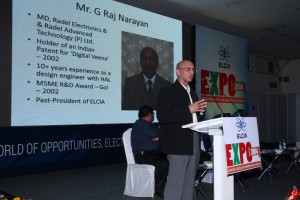Bangalore’s Electronics City MSME cluster receives Rs 120 million from Central and State governments to design and develop electronic products Monitoring the growing annual demand across India from the current USD 71 billion to USD 400 billion by 2020 in the Electronics Systems Design and Manufacturing (ESDM) sector, a cluster formed by Micro, Small & Medium Enterprises (MSME) from Electronics City, Bangalore is aiming to cater to at least USD 80 billion of this domestic demand over the next six years.
This newly formed cluster in Bangalore’s Electronics City has raised Rs 140 million from both central and state governments as well as its own members, to support start-ups and SMEs to design, test and develop electronic products. The state government has sanctioned additional funds to boost the growth of the industry and address the prevailing challenges. At present, hurdles faced by the industry ranging from power and water shortage, lack of R&D and testing facilities, bad road conditions to hindrances at check posts are contributing to an unfavorable ecosystem which the state government is likely to address.
Speaking while inaugurating the ELCIA EXPO, Sri. S R Patil, Minister of IT, BT and ST, Government of Karnataka, conveyed, “MSMEs are a crucial segment in the manufacturing landscape of the state and have significantly contributed to Karnataka’s economic growth. If the ESDM sector in Karnataka is equipped to capture even 10% of the total domestic market of US$ 400 billion, it would be an achievement in itself.”
“The Government of Karnataka has augmented the number of incentives to home-grown companies to enter into electronics manufacturing, particularly in electronics hardware, aerospace and defence sectors by leveraging the growing talent. Nevertheless, focus should certainly be on R & D, innovation, collaboration and partnerships at all levels.” he added.
With the Government of India’s strong emphasis on promoting Indigenization and opening up of the defence segment to FDI at 49%, Indian MSME segment will be playing a critical role in the entire supply chain for the Aerospace and Defence sector (A & D sector).
Echoing on the developments in the ESDM sector, G. Raj Narayan, President, ELCIA Cluster and CEO, Radel Advanced Technology Pvt. Ltd. said, “India has a vast pool of quality scientists and engineers, which is predominantly leveraged by the growing number of multinational OEMs who have set up their engineering and design centres here. Indian MSME’s in the A & D sector are now offering tremendous opportunities for such talent to develop in all fronts and in the process empower India as well.”
Electronic clusters and Industry bodies are increasing playing a vital role in setting up and sustaining an ecosystem that is critical for the electronics industry’s growth.
The original article appeared on ThisWeekBangalore.



